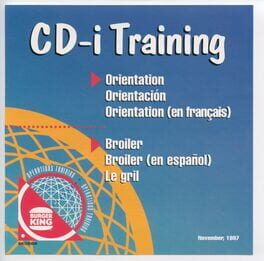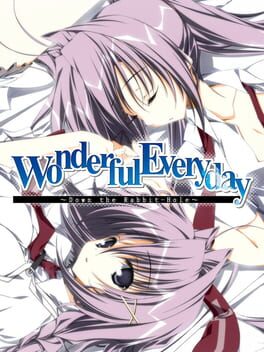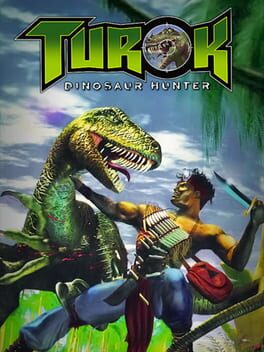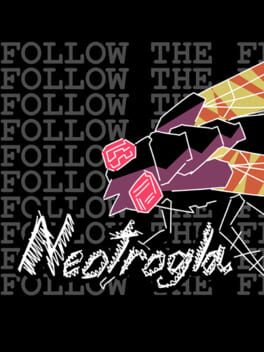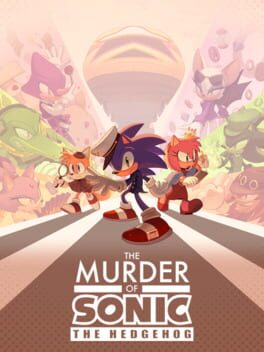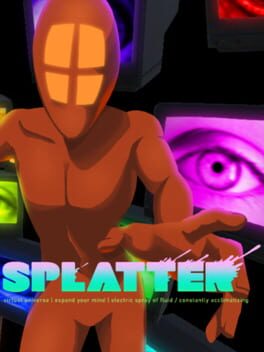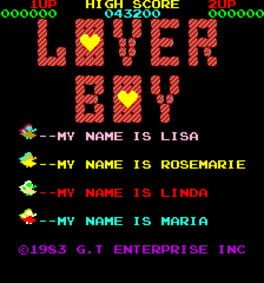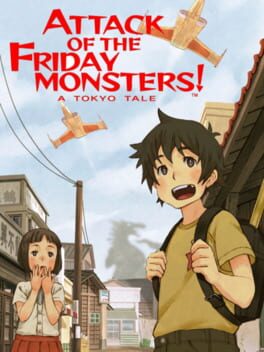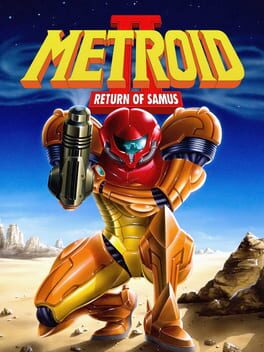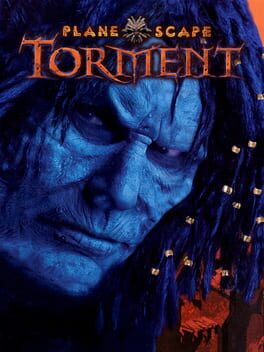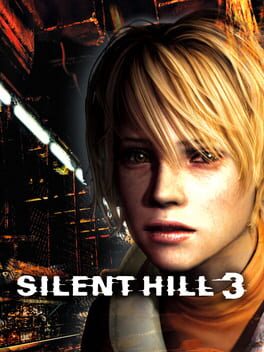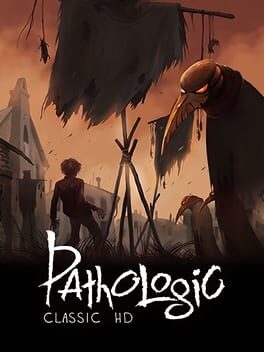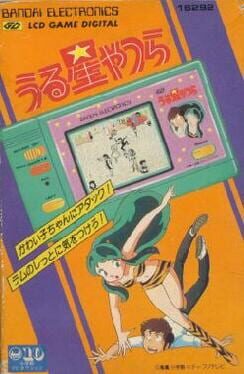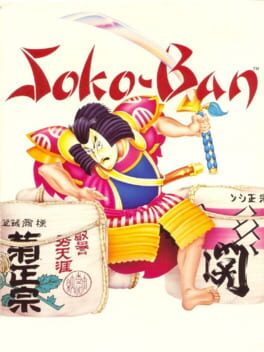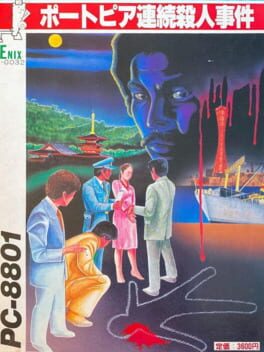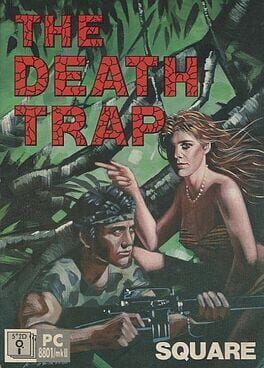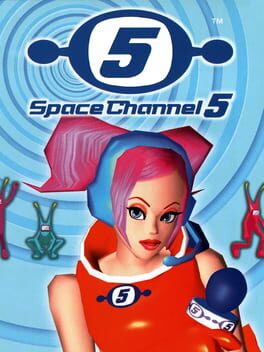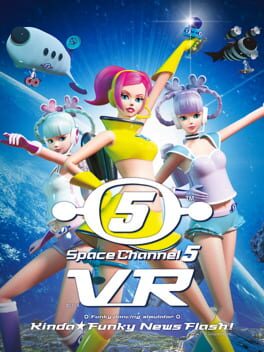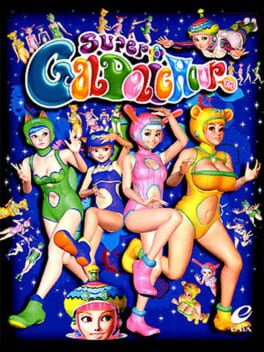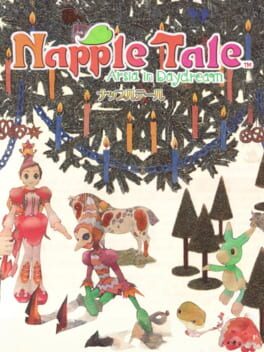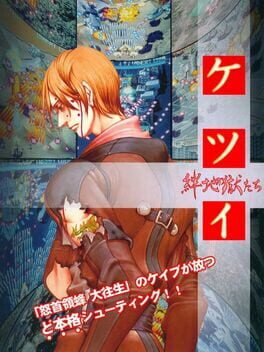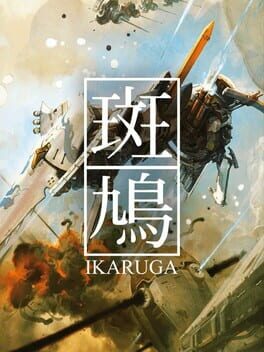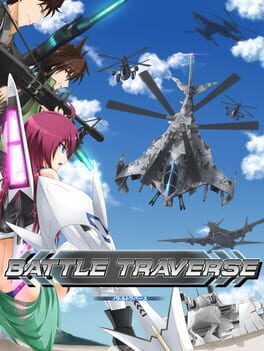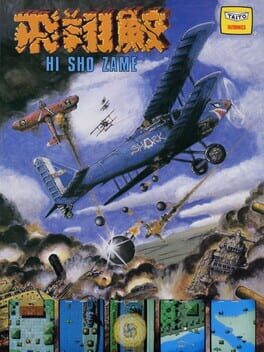cencilezzi
16 reviews liked by cencilezzi
It is easy to be dismissive. Be it art, people, food, events, the rapid, continual pace of consumption necessitates the compartmentalisation and categorisation of happenings. One can be dismissive in the positive and in the negative. The complex emotions elicited through our lives fade as quickly as they arise. Perhaps it is a consequence of language, an inability to express the phenomenon of experience. A meal's interplay of tantalising nostalgic aroma and comforting warmth in the belly is, for most of our lives, recalled as good - if it is remembered at all. A film is so bad it's good, some self-fulfilling label that sets expectations and ebbs the need for analysis of artistic merit and failure. A book is well-written. Your ex is a bitch. Last Christmas was good.
In the new hyperactive mode, wherein consumption happens largely for the sake of consumption, categorisation happens more readily, more aggressively, less critically. A director is washed. Your favourite is 🐐-ed. Films are kino or coal. Aesthetics are reduced to haphazard strictures, art pinned as frutiger aero, frasurbane, girlypunk neo-Y2K vectorheart nu-brute. Games are flavour of the month, kusoge, kamige, kiige, bakage, normiecore. Bring something up, and everyone has an opinion, a rote repetition of regurgitated refuse. Exhibit passion for that outside the zeitgeist, and be lambasted. Convey discontent with the beloved, be accused of poor media literacy. Are we even partaking of that which we parade around, or are we playing an elaborate game of telephone?
Even Burger King Orientation CD-i Training cannot escape unharmed. A wave of ironic praise and genuine befuddlement at why this exists, why it is revisited. One must be seeking attention for having such a quirky thing on their profile. It is impossible that it is enjoyed on a deeper level, as a response to a wider fascination, as a dive into historical (non-)import. The new hyperactive mode intentionally seeks signifiers which mark the self as interesting. An intentional facade which begs it won't be scrutinised.
But just because you have constructed this mask does not mean we all wear it. And perhaps I am being dismissive of your own thoughts. The truth of the matter is you don't care what I think, or why I feel a certain way. And to be fair, I feel the same animosity towards you. We are strangers at the conflux of comparison of preference.
I am filled with a genuine glee when I 'play' Burger King Orientation CD-i Training, but maybe it is best I keep the reasons to myself, as with so much else.
After all, you care not for what I think, so what is the difference if those thoughts are no longer laid bare.
In the new hyperactive mode, wherein consumption happens largely for the sake of consumption, categorisation happens more readily, more aggressively, less critically. A director is washed. Your favourite is 🐐-ed. Films are kino or coal. Aesthetics are reduced to haphazard strictures, art pinned as frutiger aero, frasurbane, girlypunk neo-Y2K vectorheart nu-brute. Games are flavour of the month, kusoge, kamige, kiige, bakage, normiecore. Bring something up, and everyone has an opinion, a rote repetition of regurgitated refuse. Exhibit passion for that outside the zeitgeist, and be lambasted. Convey discontent with the beloved, be accused of poor media literacy. Are we even partaking of that which we parade around, or are we playing an elaborate game of telephone?
Even Burger King Orientation CD-i Training cannot escape unharmed. A wave of ironic praise and genuine befuddlement at why this exists, why it is revisited. One must be seeking attention for having such a quirky thing on their profile. It is impossible that it is enjoyed on a deeper level, as a response to a wider fascination, as a dive into historical (non-)import. The new hyperactive mode intentionally seeks signifiers which mark the self as interesting. An intentional facade which begs it won't be scrutinised.
But just because you have constructed this mask does not mean we all wear it. And perhaps I am being dismissive of your own thoughts. The truth of the matter is you don't care what I think, or why I feel a certain way. And to be fair, I feel the same animosity towards you. We are strangers at the conflux of comparison of preference.
I am filled with a genuine glee when I 'play' Burger King Orientation CD-i Training, but maybe it is best I keep the reasons to myself, as with so much else.
After all, you care not for what I think, so what is the difference if those thoughts are no longer laid bare.
Final Fantasy XVI
2023
I considered strongly putting together a long-form critique of this game, but the most damning statement I could possibly make about Final Fantasy XVI is that I truly don't think it's worth it. The ways in which I think this game is bad are not unique or interesting: it is bad in the same way the vast majority of these prestige Sony single-player exclusives are. Its failures are common, predictable, and depressingly endemic. It is bad because it hates women, it is bad because it treats it's subject matter with an aggressive lack of care or interest, it is bad because it's imagination is as narrow and constrained as it's level design. But more than anything else, it is bad because it only wants to be Good.
Oxymoronic a statement as it might appear, this is core to the game's failings to me. People who make games generally want to make good games, of course, but paired with that there is an intent, an interest, an idea that seeks to be communicated, that the eloquence with which it professes its aesthetic, thematic, or mechanical goals will produce the quality it seeks. Final Fantasy XVI may have such goals, but they are supplicant to its desire to be liked, and so, rather than plant a flag of its own, it stitches together one from fabric pillaged from the most immediate eikons of popularity and quality - A Song of Ice and Fire, God of War, Demon Slayer, Devil May Cry - desperately begging to be liked by cloaking itself in what many people already do, needing to be loved in the way those things are, without any of the work or vision of its influences, and without any charisma of its own. Much like the patch and DLC content for Final Fantasy XV, it's a reactionary and cloying work that contorts itself into a shape it thinks people will love, rather than finding a unique self to be.
From the aggressively self-serious tone that embraces wholeheartedly the aesthetics of Prestige Fantasy Television with all its fucks and shits and incest and Grim Darkness to let you know that This Isn't Your Daddy's Final Fantasy, without actually being anywhere near as genuinely Dark, sad, or depressing as something like XV, from combat that borrows the surface-level signifiers of Devil May Cry combat - stingers, devil bringers, enemy step - but without any actual opposition or reaction of that series' diverse and reactive enemy set and thoughtful level design, or the way there's a episode of television-worth of lectures from a character explaining troop movements and map markers that genuinely do not matter in any way in order to make you feel like you're experiencing a well thought-out and materially concerned political Serious Fantasy, Final Fantasy XVI is pure wafer-thin illusion; all the surface from it's myriad influences but none of the depth or nuance, a greatest hits album from a band with no voice to call their own, an algorithmically generated playlist of hits that tunelessly resound with nothing. It looks like Devil May Cry, but it isn't - Devil May Cry would ask more of you than dodging one attack at a time while you perform a particularly flashy MMO rotation. It looks like A Song of Ice and Fire, but it isn't - without Martin's careful historical eye and materialist concerns, the illusion that this comes even within striking distance of that flawed work shatters when you think about the setting for more than a moment.
In fairness, Final Fantasy XVI does bring more than just the surface level into its world: it also brings with it the nastiest and ugliest parts of those works into this one, replicated wholeheartedly as Aesthetic, bereft of whatever semblance of texture and critique may have once been there. Benedikta Harman might be the most disgustingly treated woman in a recent work of fiction, the seemingly uniform AAA Game misogyny of evil mothers and heroic, redeemable fathers is alive and well, 16's version of this now agonizingly tired cliche going farther even than games I've railed against for it in the past, which all culminates in a moment where three men tell the female lead to stay home while they go and fight (despite one of those men being a proven liability to himself and others when doing the same thing he is about to go and do again, while she is not), she immediately acquiesces, and dutifully remains in the proverbial kitchen. Something that thinks so little of women is self-evidently incapable of meaningfully tackling any real-world issue, something Final Fantasy XVI goes on to decisively prove, with its story of systemic evils defeated not with systemic criticism, but with Great, Powerful Men, a particularly tiresome kind of rugged bootstrap individualism that seeks to reduce real-world evils to shonen enemies for the Special Man with Special Powers to defeat on his lonesome. It's an attempt to discuss oppression and racism that would embarrass even the other shonen media it is clearly closer in spirit to than the dark fantasy political epic it wears the skin of. In a world where the power fantasy of the shonen superhero is sacrosanct over all other concerns, it leads to a conclusion as absurd and fundamentally unimaginative as shonen jump's weakest scripts: the only thing that can stop a Bad Guy with an Eikon is a Good Guy with an Eikon.
In borrowing the aesthetics of the dark fantasy - and Matsuno games - it seeks to emulate, but without the nuance, FF16 becomes a game where the perspective of the enslaved is almost completely absent (Clive's period as a slave might as well not have occurred for all it impacts his character), and the power of nobility is Good when it is wielded by Good Hands like Lord Rosfield, a slave owner who, despite owning the clearly abused character who serves as our introduction to the bearers, is eulogized completely uncritically by the script, until a final side quest has a character claim that he was planning to free the slaves all along...alongside a letter where Lord Rosfield discusses his desire to "put down the savages". I've never seen attempted slave owner apologia that didn't reveal its virulent underlying racism, and this is no exception. In fact, any time the game attempts to put on a facade of being about something other than The Shonen Hero battling other Kamen Riders for dominance, it crumbles nigh-immediately; when Final Fantasy 16 makes its overtures towards the Power of Friendship, it rings utterly false and hollow: Clive's friends are not his power. His power is his power.
The only part of the game that truly spoke to me was the widely-derided side-quests, which offer a peek into a more compelling story: the story of a man doing the work to build and maintain a community, contributing to both the material and emotional needs of a commune that attempts to exist outside the violence of society. As tedious as these sidequests are - and as agonizing as their pacing so often is - it's the only part of this game where it felt like I was engaging with an idea. But ultimately, even this is annihilated by the game's bootstrap nonsense - that being that the hideaway is funded and maintained by the wealthy and influential across the world, the direct beneficiaries and embodiments of the status quo funding what their involvement reveals to be an utterly illusionary attempt to escape it, rendering what could be an effective exploration of what building a new idea of a community practically looks like into something that could be good neighbors with Galt's Gulch.
In a series that is routinely deeply rewarding for me to consider, FF16 stands as perhaps its most shallow, underwritten, and vacuous entry in decades. All games are ultimately illusions, of course: we're all just moving data around spreadsheets, at the end of the day. But - as is the modern AAA mode de jour - 16 is the result of the careful subtraction of texture from the experience of a game, the removal of any potential frictions and frustrations, but further even than that, it is the removal of personality, of difference, it is the attempt to make make the smoothest, most likable affect possible to the widest number of people possible. And, just like with its AAA brethren, it has almost nothing to offer me. It is the affect of Devil May Cry without its texture, the affect of Game of Thrones without even its nuance, and the affect of Final Fantasy without its soul.
Final Fantasy XVI is ultimately a success. It sought out to be Good, in the way a PS5 game like this is Good, and succeeded. And in so doing, it closed off any possibility that it would ever reach me.
It doesn’t really surprise me that each positive sentiment I have seen on Final Fantasy XVI is followed by an exclamation of derision over the series’ recent past. Whether the point of betrayal and failure was in XV, or with XIII, or even as far back as VIII, the rhetorical move is well and truly that Final Fantasy has been Bad, and with XVI, it is good again. Unfortunately, as someone who thought Final Fantasy has Been Good, consistently, throughout essentially the entire span of it's existence, I find myself on the other side of this one.
Final Fantasy XV convinced me that I could still love video games when I thought, for a moment, that I might not. That it was still possible to make games on this scale that were idiosyncratic, personal, and deeply human, even in the awful place the video game industry is in.
Final Fantasy XVI convinced me that it isn't.
Oxymoronic a statement as it might appear, this is core to the game's failings to me. People who make games generally want to make good games, of course, but paired with that there is an intent, an interest, an idea that seeks to be communicated, that the eloquence with which it professes its aesthetic, thematic, or mechanical goals will produce the quality it seeks. Final Fantasy XVI may have such goals, but they are supplicant to its desire to be liked, and so, rather than plant a flag of its own, it stitches together one from fabric pillaged from the most immediate eikons of popularity and quality - A Song of Ice and Fire, God of War, Demon Slayer, Devil May Cry - desperately begging to be liked by cloaking itself in what many people already do, needing to be loved in the way those things are, without any of the work or vision of its influences, and without any charisma of its own. Much like the patch and DLC content for Final Fantasy XV, it's a reactionary and cloying work that contorts itself into a shape it thinks people will love, rather than finding a unique self to be.
From the aggressively self-serious tone that embraces wholeheartedly the aesthetics of Prestige Fantasy Television with all its fucks and shits and incest and Grim Darkness to let you know that This Isn't Your Daddy's Final Fantasy, without actually being anywhere near as genuinely Dark, sad, or depressing as something like XV, from combat that borrows the surface-level signifiers of Devil May Cry combat - stingers, devil bringers, enemy step - but without any actual opposition or reaction of that series' diverse and reactive enemy set and thoughtful level design, or the way there's a episode of television-worth of lectures from a character explaining troop movements and map markers that genuinely do not matter in any way in order to make you feel like you're experiencing a well thought-out and materially concerned political Serious Fantasy, Final Fantasy XVI is pure wafer-thin illusion; all the surface from it's myriad influences but none of the depth or nuance, a greatest hits album from a band with no voice to call their own, an algorithmically generated playlist of hits that tunelessly resound with nothing. It looks like Devil May Cry, but it isn't - Devil May Cry would ask more of you than dodging one attack at a time while you perform a particularly flashy MMO rotation. It looks like A Song of Ice and Fire, but it isn't - without Martin's careful historical eye and materialist concerns, the illusion that this comes even within striking distance of that flawed work shatters when you think about the setting for more than a moment.
In fairness, Final Fantasy XVI does bring more than just the surface level into its world: it also brings with it the nastiest and ugliest parts of those works into this one, replicated wholeheartedly as Aesthetic, bereft of whatever semblance of texture and critique may have once been there. Benedikta Harman might be the most disgustingly treated woman in a recent work of fiction, the seemingly uniform AAA Game misogyny of evil mothers and heroic, redeemable fathers is alive and well, 16's version of this now agonizingly tired cliche going farther even than games I've railed against for it in the past, which all culminates in a moment where three men tell the female lead to stay home while they go and fight (despite one of those men being a proven liability to himself and others when doing the same thing he is about to go and do again, while she is not), she immediately acquiesces, and dutifully remains in the proverbial kitchen. Something that thinks so little of women is self-evidently incapable of meaningfully tackling any real-world issue, something Final Fantasy XVI goes on to decisively prove, with its story of systemic evils defeated not with systemic criticism, but with Great, Powerful Men, a particularly tiresome kind of rugged bootstrap individualism that seeks to reduce real-world evils to shonen enemies for the Special Man with Special Powers to defeat on his lonesome. It's an attempt to discuss oppression and racism that would embarrass even the other shonen media it is clearly closer in spirit to than the dark fantasy political epic it wears the skin of. In a world where the power fantasy of the shonen superhero is sacrosanct over all other concerns, it leads to a conclusion as absurd and fundamentally unimaginative as shonen jump's weakest scripts: the only thing that can stop a Bad Guy with an Eikon is a Good Guy with an Eikon.
In borrowing the aesthetics of the dark fantasy - and Matsuno games - it seeks to emulate, but without the nuance, FF16 becomes a game where the perspective of the enslaved is almost completely absent (Clive's period as a slave might as well not have occurred for all it impacts his character), and the power of nobility is Good when it is wielded by Good Hands like Lord Rosfield, a slave owner who, despite owning the clearly abused character who serves as our introduction to the bearers, is eulogized completely uncritically by the script, until a final side quest has a character claim that he was planning to free the slaves all along...alongside a letter where Lord Rosfield discusses his desire to "put down the savages". I've never seen attempted slave owner apologia that didn't reveal its virulent underlying racism, and this is no exception. In fact, any time the game attempts to put on a facade of being about something other than The Shonen Hero battling other Kamen Riders for dominance, it crumbles nigh-immediately; when Final Fantasy 16 makes its overtures towards the Power of Friendship, it rings utterly false and hollow: Clive's friends are not his power. His power is his power.
The only part of the game that truly spoke to me was the widely-derided side-quests, which offer a peek into a more compelling story: the story of a man doing the work to build and maintain a community, contributing to both the material and emotional needs of a commune that attempts to exist outside the violence of society. As tedious as these sidequests are - and as agonizing as their pacing so often is - it's the only part of this game where it felt like I was engaging with an idea. But ultimately, even this is annihilated by the game's bootstrap nonsense - that being that the hideaway is funded and maintained by the wealthy and influential across the world, the direct beneficiaries and embodiments of the status quo funding what their involvement reveals to be an utterly illusionary attempt to escape it, rendering what could be an effective exploration of what building a new idea of a community practically looks like into something that could be good neighbors with Galt's Gulch.
In a series that is routinely deeply rewarding for me to consider, FF16 stands as perhaps its most shallow, underwritten, and vacuous entry in decades. All games are ultimately illusions, of course: we're all just moving data around spreadsheets, at the end of the day. But - as is the modern AAA mode de jour - 16 is the result of the careful subtraction of texture from the experience of a game, the removal of any potential frictions and frustrations, but further even than that, it is the removal of personality, of difference, it is the attempt to make make the smoothest, most likable affect possible to the widest number of people possible. And, just like with its AAA brethren, it has almost nothing to offer me. It is the affect of Devil May Cry without its texture, the affect of Game of Thrones without even its nuance, and the affect of Final Fantasy without its soul.
Final Fantasy XVI is ultimately a success. It sought out to be Good, in the way a PS5 game like this is Good, and succeeded. And in so doing, it closed off any possibility that it would ever reach me.
It doesn’t really surprise me that each positive sentiment I have seen on Final Fantasy XVI is followed by an exclamation of derision over the series’ recent past. Whether the point of betrayal and failure was in XV, or with XIII, or even as far back as VIII, the rhetorical move is well and truly that Final Fantasy has been Bad, and with XVI, it is good again. Unfortunately, as someone who thought Final Fantasy has Been Good, consistently, throughout essentially the entire span of it's existence, I find myself on the other side of this one.
Final Fantasy XV convinced me that I could still love video games when I thought, for a moment, that I might not. That it was still possible to make games on this scale that were idiosyncratic, personal, and deeply human, even in the awful place the video game industry is in.
Final Fantasy XVI convinced me that it isn't.
What a shitload of fuck! This game, Subahibi, is one of the weirdest and most messed up games I've ever had the displeasure of playing.
So you start off as this average Joe named Takumi, and from there, it's like stepping into a never-ending fever dream! Seriously, the game just flips characters and timelines like it's going out of freakin' style, making it a nightmare to follow.
And let me tell ya, the dialogue in this game is as pretentious as a turd claiming it won the Pulitzer Prize! These characters think they're fuckin' philosophers, spouting off lines that don't make a lick of sense. All I wanted was to play a game, not be dragged through the mud by a bunch of whiny-ass punks!
That being said, for all its craptastic dialogue and confusing-as-hell plot, I'd be lying if I said I didn't find some things intriguing about this dumpster fire. The visuals are pretty snazzy, and the whole bizarre story actually starts to grow on you after a while.
Alright, bottom line: Subahibi is a convoluted shitstorm that may appeal to some of you sick twisted gamers out there. But for me and my sanity, I'm going to refrain from any further experience with this game and go throw a couple of ice-cold beers down my gullet to wash away that mind-fuckery experience.
So you start off as this average Joe named Takumi, and from there, it's like stepping into a never-ending fever dream! Seriously, the game just flips characters and timelines like it's going out of freakin' style, making it a nightmare to follow.
And let me tell ya, the dialogue in this game is as pretentious as a turd claiming it won the Pulitzer Prize! These characters think they're fuckin' philosophers, spouting off lines that don't make a lick of sense. All I wanted was to play a game, not be dragged through the mud by a bunch of whiny-ass punks!
That being said, for all its craptastic dialogue and confusing-as-hell plot, I'd be lying if I said I didn't find some things intriguing about this dumpster fire. The visuals are pretty snazzy, and the whole bizarre story actually starts to grow on you after a while.
Alright, bottom line: Subahibi is a convoluted shitstorm that may appeal to some of you sick twisted gamers out there. But for me and my sanity, I'm going to refrain from any further experience with this game and go throw a couple of ice-cold beers down my gullet to wash away that mind-fuckery experience.
This game is rough to play in 2021(at least on N64). The platforming is extremely clunky, enemies will respawn right behind you, strafe running is incredibly fast and will possibly make you nauseous.
But my god, it's still satisfying as all hell to kill those campaigner troops and the music is so fucking cool.
But my god, it's still satisfying as all hell to kill those campaigner troops and the music is so fucking cool.
Neotrogla
2023
This review contains spoilers
Trying to find a place to live right now is so bad that people would literally rather metamorphosize and live in the walls over having to paying rent. fucked up.
From the grey depictions of city live, the intimate process of the unnamed protagonist's pinning and framing of bugs, to the grotesque description of corpses, mutation, and filth, Neotrolga successfully captured and sucked me into its repulsive horror. I was hooked on every word, and groaned in disgust with every new page (complementary). The accompanying music makes for a nice touch, settling in the fear and anxiety off from the protagonist into every minor detail and image.
If I had to complain, the beginning portion was a tad bit overwritten and slow for my liking, but once the horror started to settle in, I couldn't tear my eyes away from my screen.
My friends made this game and while that may or may not have influenced my enjoyment, I still think it's a delightfully revolting horror story in all the right ways. Go check it out!
From the grey depictions of city live, the intimate process of the unnamed protagonist's pinning and framing of bugs, to the grotesque description of corpses, mutation, and filth, Neotrolga successfully captured and sucked me into its repulsive horror. I was hooked on every word, and groaned in disgust with every new page (complementary). The accompanying music makes for a nice touch, settling in the fear and anxiety off from the protagonist into every minor detail and image.
If I had to complain, the beginning portion was a tad bit overwritten and slow for my liking, but once the horror started to settle in, I couldn't tear my eyes away from my screen.
My friends made this game and while that may or may not have influenced my enjoyment, I still think it's a delightfully revolting horror story in all the right ways. Go check it out!
Splatter
2022
If the last half-decade has demonstrated anything, it is that the terminally online rhetoric of post-ironic who-gives-a-shit is metastasising. Vine was a benign growth, TikTok a malignant tumour. The netizen-hive-mind-collective that 'solved' the Boston Bombing is directly responsible for the fashwave that is/has/does/will erode democracy. Your grandpa has FOMO and bought $GME to 💎🙌 to the moon and we're all gonna make it, gm, gn, and you're buying into my shitcoin so I can rugpull you because Blizzard nerfed Siphon Life during Obamna's first term. Video games and anime used to be so much better before this forced diversity bullshit ᴡʜᴀᴛ ᴛʜᴇ ꜰᴜᴄᴋ ᴀʀᴇ yᴏᴜ ꜱᴀyɪɴɢ ᴅᴏ yᴏᴜ ʜᴇᴀʀ ᴛʜᴇ ꜱʜɪᴛ ᴅʀɪʙʙʟɪɴɢ ᴏᴜᴛ ᴏꜰ yᴏᴜʀ ᴍᴏᴜᴛʜ yᴏᴜ ᴄʀᴇᴛɪɴ took away the possibility of me getting a tradwife with Abigail Shapiro's body and Marin Kitagawa's face while I [REDACTED] to Angela White after a month of semen retention and get those GAIN$$$$ because there's always a bigger fool and it sure as fuck isn't me and you just don't get this new meme and I'm being gangstalked and I haven't [As the owner of a LandNFT, you own your individual Metalverse patch and secure a permanently assigned place on the Met---
The Milennials are the new Boomers [GEN-X ERASURE] and even the Zoomers are coming of age and they've been inundated with information and bullshit bullshit bullshit so they're casting a mirror back at this fucked up world we've made for them in their own art but some people are trying to be cute and coy with it and you get a YIIK or a Neon Whitebut at least one of those was a good game even if it was still corpo-white-washed faux-sthetics. And your cute and coy attempts and being quirky fail to represent how angry you should be that you were born into this mess of a world because don't you know anger results in nothing? Why yes my favourite podcasts are My Brother, My Brother & Me, and The Adventure Zone, I love to choke down the fetid slurry that is the McElroys' toxic positivity of no bummers and horses and you're being force fed advertisements for fast food and you can't even open your eyes to realise it.
So when a game has the moxie to be viscerally angry, I have to take notice because that feels so genuine in the hyperrealistic world we inhabit. And Splatter is mad that the Internet has made us manipulative, lonely, nostalgic, deluded, greedy, and ultimately willing to harm others (or ourselves) for some gain, be it financial or spiritual or egotistical or chemical. This works where other games borne of the online mindset falter because this runs deep. Rat King Collective didn't disconnect to craft up some malformed half-simulacra that is outdated before it comes out. They never stopped being online, they didn't go for the here and now, they struck at the core of fourteen-year-old-me's identity. This isn't the cream of the crap, this is the dregs of a multitude of online cultures that you, yes, had to be there for. Or maybe you didn't. Does it matter? This goes deep enough that a missed referential quip refuses a reading of "oh this is one of those internet things I don't get," it simply recedes into the background, a cacophony of noise.
It isn't as if the gameplay is some marvel though. It's a spongy xoomer-shooter affair with hand guns and a Dark Souls Borne Ring dodge and commitment to the bit. A leaping enemy is gonna leap! Your dodge isn't going to give you i-frames but it'll get you out of the way and into a new harm's way. I'm not here for the gameplay anyways, it's a means to an end.
This is the video game equivalent of B.R. Yeager's Amygdalatropolis and I ravenously ate it up. Get mad. Wreck shit. Tear it all down. WORLD IS A FUCK
The Milennials are the new Boomers [GEN-X ERASURE] and even the Zoomers are coming of age and they've been inundated with information and bullshit bullshit bullshit so they're casting a mirror back at this fucked up world we've made for them in their own art but some people are trying to be cute and coy with it and you get a YIIK or a Neon White
So when a game has the moxie to be viscerally angry, I have to take notice because that feels so genuine in the hyperrealistic world we inhabit. And Splatter is mad that the Internet has made us manipulative, lonely, nostalgic, deluded, greedy, and ultimately willing to harm others (or ourselves) for some gain, be it financial or spiritual or egotistical or chemical. This works where other games borne of the online mindset falter because this runs deep. Rat King Collective didn't disconnect to craft up some malformed half-simulacra that is outdated before it comes out. They never stopped being online, they didn't go for the here and now, they struck at the core of fourteen-year-old-me's identity. This isn't the cream of the crap, this is the dregs of a multitude of online cultures that you, yes, had to be there for. Or maybe you didn't. Does it matter? This goes deep enough that a missed referential quip refuses a reading of "oh this is one of those internet things I don't get," it simply recedes into the background, a cacophony of noise.
It isn't as if the gameplay is some marvel though. It's a spongy xoomer-shooter affair with hand guns and a Dark Souls Borne Ring dodge and commitment to the bit. A leaping enemy is gonna leap! Your dodge isn't going to give you i-frames but it'll get you out of the way and into a new harm's way. I'm not here for the gameplay anyways, it's a means to an end.
This is the video game equivalent of B.R. Yeager's Amygdalatropolis and I ravenously ate it up. Get mad. Wreck shit. Tear it all down. WORLD IS A FUCK
Lover Boy
1983
This review is a sister piece to my review of 177. I recommend reading that first.
CW: Sexual assault. The four-letter ‘R-word’ is invoked repeatedly without censoring or obfuscation.
WHEN YOU CATCH A GIRL YOU MUST FIND RIGHT TIMING FOR MAXIMUM RESULT WHICH WILL BE SHOWN ON LOVE METER ACTION OF LOVE MAKING IS BY PUSH BUTTON. BEST TIMING WILL PRODUCE MOST ECSTATIC RESULTS ON FEMALE METER.
Lover Boy is functionally unremarkable, seemingly of as much import as Min Corp.’s Gumbo or Toaplan’s Pipi & Bibi’s. Unlike those games, however, Lover Boy is mired in obscurity, controversy, and a historiography that crumbles under scrutiny.
The gameplay is in line with other maze games of the early 1980s. The Lover Boy chases Lisa, Rosemarie, Linda, and Maria through a labyrinth while police officers and dogs track him. There are item pickups for points, and bottles of perfume which incense Lover Boy, boosting his speed dramatically. All the while, a rendition of the nursery rhyme しょうじょうじのたぬきばやし 「 Shoujouji no Tanukibayashi」 plays merrily. Getting near the girls causes them to run away while yelling HELP, touching them starts your digital assault. Like 177, the player tries to get their victim’s pleasure meter to top out before Lover Boy climaxes. Though 177 used directional inputs, Lover Boy simply has you tapping the button at a steady rhythm. Filling the LADY LOVE to the heart at the top has the women elate Oh~. Climaxing before she can has her yelling NO! and escaping, Lover Boy needing to chase her down again.
Though less explicitly stated in Lover Boy as compared to 177, we see the same rape myth being perpetuated, that of rape becoming a consensual sexual act should the victim reach orgasm. Since Lover Boy is an arcade game, designed to munch the yen of the aroused, there is no good ending to speak of here. The cycle continues in perpetuity until Lover Boy is put behind bars for good. This might suggest an inevitability to the rapist being caught and punished accordingly in due time, but the lives system inadvertently paints a picture wherein a sexual criminal is released and allowed to repeat their crimes with minimal repercussion. Lest we forget the harrowing injustice presented in 177’s manual, “even if he was prosecuted then, he would not be charged with a crime.” Capture is thus an inconvenience, nothing more.
In trying to find out more about Lover Boy, I came to find out it was cause for debate in the Deutscher Bundestag a year after its release. On March 26, 1984, parliamentary spokespersons for Die Grünen (The Greens) Marieluise Beck, Petra Kelly, and Otto Schily brought to the attention of the federal government the installation of light-gun games and Lover Boy in an arcade in Soest. Both were cited as potential violations of Section 131 of the Strafgesetzbuch (Criminal Code), stating therein the illegality of representations which glorified violence. Increasingly realistic depictions of humans as targets for violence, both physical and sexual, necessitated a re-evaluation of existing legislation which made no such effort to criminalise imagery which ‘violated human dignity.’
Sixteen days later, the Federal Government answered the concerns of Die Grünen. The government had come to understand Lover Boy was installed in locations besides Soest, with the understanding that the PCB had been presented by an Italian importer in 1983 at Internationalen Fachmesse für Unterhaltungs- und Warenautomaten (The International Trade Fair for Amusement and Vending Machines) in Frankfurt. The specific board in Soest which drew initial concerns was sourced from a distributor in Dortmund. A March 1984 arcade game trade journal advertised Lover Boy as suitable for children, and thirty-two machines ended up being sold in North Rhine-Westphalia alone, and it came to be understood that Automaten-Selbstkontrolle (ASK) had been presented with incomplete information by which to rate its content; the content was egregious enough to exclude Lover Boy from any rating, leading to the existing machines being purchased and destroyed. A draft law was proposed to the Bundestag, stipulating that games of a violent sort must be prohibited from public areas frequented by children, and postulating that perhaps violent games should be banned wholesale in Germany.
A year later, in April 1985, Section 131 of the Strafgeseztbuch was amended to prohibit representations of violence, rather than just those which glorified it. Additionally, depictions of the ‘violation of human dignity’ were criminalised as well. The ASK became a permanent institution, officially regulating an industry that had, up to that point, been self-regulated.
The ban in Germany is easy to trace, but time and again, it is stated in other reviews and retrospectives that Lover Boy was banned globally outside of Japan with zero evidence offered to support that claim. Searches for “Lover Boy” and “Global Corporation Tokyo” in the United States Congressional Record, Historical Debates of the Parliament of Canada, British Cabinet Papers, CommonLii, Italian Senate record, New York Times, Globe & Mail, all turned up nothing. The German Wikipedia page also makes no mention of Lover Boy being banned anywhere outside of Germany.
Outside of the Bundestag record, some of the only other concrete information about Lover Boy is that it was brought to market by the same company that made 1983’s JoinEm, a non-erotic maze game, released under the name Global Corporation. The pinout and DIP switch documentation included with the Lover Boy PCB had Lover Boy handwritten on them. Weirding the situation further, a seeming bootleg of Lover Boy was released in Spain under the name Triki Triki, changing the developer name to DDT Enterprise, editing the copyright date to 1993.-nicht-jugendfrei-und-nicht-in-Mame/page10) The trail ends there.
If I were to posit a guess, the majority of the inaccurate claims about Lover Boy stem from a single GameFAQs review by defunct user ‘TheSAMMIES’. They claim, erroneously, that Lover Boy:
- Deals with aspects of rape beyond the penetrative act
- Has been banned globally
- Has better gameplay than 177
- Is slang for a man who lures underage women into prostitution (the term is only used in that manner in Dutch)
- Depicts only underage women
- Displays female genitalia
- Has only one maze
- Is of dark comedic value
None of that is true whatsoever. Their spurious falsehoods are on display in their review of 177 as well, claiming falsely:
- 177 is the police code for rape (it is simply the section of the Japanese Criminal Code which criminalises rape)
- RapeLay tackles rape more tactfully
- 177’s rape scenes show plant life and the night sky (they actually occur in a black void)
- Has controls in its rape scenes for getting onto Kotoe, penetrating her, building up sexual stamina (you actually just gyrate, the graphics barely animating)
- That 177 received a remake called 171 wherein Hideo is replaced by a squid monster, Kotoe by a maid (I have found no evidence of such a game existing)
Whether these ideas are being born purely from their mind, some misinterpretation of the realities of history, or whatever else, this individual seems to have irreparably tarnished the known history of Lover Boy, leading to prolonged repetition of the same incorrect claims. If there were any evidence to back up those ideas, wouldn’t they have shown themselves? Does it matter? Nobody cares about this game, nobody knows about it, can we fault the few who have documented it for their inaccuracies?
Yes, because it makes determining the truth all the harder. Yes, because it puts the onus of honestly on those who come after the fact. Yes, because just as these games are harmful in their depictions, speaking of them falsely is just as much of a disservice to history.
CW: Sexual assault. The four-letter ‘R-word’ is invoked repeatedly without censoring or obfuscation.
WHEN YOU CATCH A GIRL YOU MUST FIND RIGHT TIMING FOR MAXIMUM RESULT WHICH WILL BE SHOWN ON LOVE METER ACTION OF LOVE MAKING IS BY PUSH BUTTON. BEST TIMING WILL PRODUCE MOST ECSTATIC RESULTS ON FEMALE METER.
Lover Boy is functionally unremarkable, seemingly of as much import as Min Corp.’s Gumbo or Toaplan’s Pipi & Bibi’s. Unlike those games, however, Lover Boy is mired in obscurity, controversy, and a historiography that crumbles under scrutiny.
The gameplay is in line with other maze games of the early 1980s. The Lover Boy chases Lisa, Rosemarie, Linda, and Maria through a labyrinth while police officers and dogs track him. There are item pickups for points, and bottles of perfume which incense Lover Boy, boosting his speed dramatically. All the while, a rendition of the nursery rhyme しょうじょうじのたぬきばやし 「 Shoujouji no Tanukibayashi」 plays merrily. Getting near the girls causes them to run away while yelling HELP, touching them starts your digital assault. Like 177, the player tries to get their victim’s pleasure meter to top out before Lover Boy climaxes. Though 177 used directional inputs, Lover Boy simply has you tapping the button at a steady rhythm. Filling the LADY LOVE to the heart at the top has the women elate Oh~. Climaxing before she can has her yelling NO! and escaping, Lover Boy needing to chase her down again.
Though less explicitly stated in Lover Boy as compared to 177, we see the same rape myth being perpetuated, that of rape becoming a consensual sexual act should the victim reach orgasm. Since Lover Boy is an arcade game, designed to munch the yen of the aroused, there is no good ending to speak of here. The cycle continues in perpetuity until Lover Boy is put behind bars for good. This might suggest an inevitability to the rapist being caught and punished accordingly in due time, but the lives system inadvertently paints a picture wherein a sexual criminal is released and allowed to repeat their crimes with minimal repercussion. Lest we forget the harrowing injustice presented in 177’s manual, “even if he was prosecuted then, he would not be charged with a crime.” Capture is thus an inconvenience, nothing more.
In trying to find out more about Lover Boy, I came to find out it was cause for debate in the Deutscher Bundestag a year after its release. On March 26, 1984, parliamentary spokespersons for Die Grünen (The Greens) Marieluise Beck, Petra Kelly, and Otto Schily brought to the attention of the federal government the installation of light-gun games and Lover Boy in an arcade in Soest. Both were cited as potential violations of Section 131 of the Strafgesetzbuch (Criminal Code), stating therein the illegality of representations which glorified violence. Increasingly realistic depictions of humans as targets for violence, both physical and sexual, necessitated a re-evaluation of existing legislation which made no such effort to criminalise imagery which ‘violated human dignity.’
Sixteen days later, the Federal Government answered the concerns of Die Grünen. The government had come to understand Lover Boy was installed in locations besides Soest, with the understanding that the PCB had been presented by an Italian importer in 1983 at Internationalen Fachmesse für Unterhaltungs- und Warenautomaten (The International Trade Fair for Amusement and Vending Machines) in Frankfurt. The specific board in Soest which drew initial concerns was sourced from a distributor in Dortmund. A March 1984 arcade game trade journal advertised Lover Boy as suitable for children, and thirty-two machines ended up being sold in North Rhine-Westphalia alone, and it came to be understood that Automaten-Selbstkontrolle (ASK) had been presented with incomplete information by which to rate its content; the content was egregious enough to exclude Lover Boy from any rating, leading to the existing machines being purchased and destroyed. A draft law was proposed to the Bundestag, stipulating that games of a violent sort must be prohibited from public areas frequented by children, and postulating that perhaps violent games should be banned wholesale in Germany.
A year later, in April 1985, Section 131 of the Strafgeseztbuch was amended to prohibit representations of violence, rather than just those which glorified it. Additionally, depictions of the ‘violation of human dignity’ were criminalised as well. The ASK became a permanent institution, officially regulating an industry that had, up to that point, been self-regulated.
The ban in Germany is easy to trace, but time and again, it is stated in other reviews and retrospectives that Lover Boy was banned globally outside of Japan with zero evidence offered to support that claim. Searches for “Lover Boy” and “Global Corporation Tokyo” in the United States Congressional Record, Historical Debates of the Parliament of Canada, British Cabinet Papers, CommonLii, Italian Senate record, New York Times, Globe & Mail, all turned up nothing. The German Wikipedia page also makes no mention of Lover Boy being banned anywhere outside of Germany.
Outside of the Bundestag record, some of the only other concrete information about Lover Boy is that it was brought to market by the same company that made 1983’s JoinEm, a non-erotic maze game, released under the name Global Corporation. The pinout and DIP switch documentation included with the Lover Boy PCB had Lover Boy handwritten on them. Weirding the situation further, a seeming bootleg of Lover Boy was released in Spain under the name Triki Triki, changing the developer name to DDT Enterprise, editing the copyright date to 1993.-nicht-jugendfrei-und-nicht-in-Mame/page10) The trail ends there.
If I were to posit a guess, the majority of the inaccurate claims about Lover Boy stem from a single GameFAQs review by defunct user ‘TheSAMMIES’. They claim, erroneously, that Lover Boy:
- Deals with aspects of rape beyond the penetrative act
- Has been banned globally
- Has better gameplay than 177
- Is slang for a man who lures underage women into prostitution (the term is only used in that manner in Dutch)
- Depicts only underage women
- Displays female genitalia
- Has only one maze
- Is of dark comedic value
None of that is true whatsoever. Their spurious falsehoods are on display in their review of 177 as well, claiming falsely:
- 177 is the police code for rape (it is simply the section of the Japanese Criminal Code which criminalises rape)
- RapeLay tackles rape more tactfully
- 177’s rape scenes show plant life and the night sky (they actually occur in a black void)
- Has controls in its rape scenes for getting onto Kotoe, penetrating her, building up sexual stamina (you actually just gyrate, the graphics barely animating)
- That 177 received a remake called 171 wherein Hideo is replaced by a squid monster, Kotoe by a maid (I have found no evidence of such a game existing)
Whether these ideas are being born purely from their mind, some misinterpretation of the realities of history, or whatever else, this individual seems to have irreparably tarnished the known history of Lover Boy, leading to prolonged repetition of the same incorrect claims. If there were any evidence to back up those ideas, wouldn’t they have shown themselves? Does it matter? Nobody cares about this game, nobody knows about it, can we fault the few who have documented it for their inaccuracies?
Yes, because it makes determining the truth all the harder. Yes, because it puts the onus of honestly on those who come after the fact. Yes, because just as these games are harmful in their depictions, speaking of them falsely is just as much of a disservice to history.
Sweet as sugar.
Sweet as young love.
Sweet as can be.
Nostalgic and enraptured with youth as Norwegian Wood.
Magical and intertwined as Kafka on the Shore.
Two blurred lines proceeding apace in parallel as 1Q84.
Perfectly self contained within its own narrative.
Abound with the peculiarities of children.
Spare and sparse.
Father's guidance.
Mother's embrace.
One's own destiny.
Comfortable.
Joyful.
Warm.
Sweet as young love.
Sweet as can be.
Nostalgic and enraptured with youth as Norwegian Wood.
Magical and intertwined as Kafka on the Shore.
Two blurred lines proceeding apace in parallel as 1Q84.
Perfectly self contained within its own narrative.
Abound with the peculiarities of children.
Spare and sparse.
Father's guidance.
Mother's embrace.
One's own destiny.
Comfortable.
Joyful.
Warm.
Samus never really returned to my childhood gaming life since the day I first met them back on the NES, it was quite a hole there between that and 2002, aka The Year Metroid Beat Everyone's Ass. Metroid II for all intents and purposes was just the cover for the box of the Super Game Boy, that was everything I knew it as. Just the front of a piece of cardboard that I saw at some store or in a JC Penny catalog maybe. It existed, that's all I knew.
I have many bones to pick with the way Nintendo treats it's back catalog of classics and oddities, but if there's any silver lining to the dripfeed of past content it's finding a reason to finally give a serious go at Samus' mission to genocide a race of beings for the supposed sake of the galaxy. The final enemies that you were once scared of back on your original adventure are now the sole focus of your mission, and as it turns out those were just the little baby forms. The nightmarish vampire jellyfish can evolve into monstrosities that could no doubt devastate many a civilization.
This is a fight for survival on both ends, it's us or them. It's not pretty.
The sprites are huge and chunky, resulting in screen space being closed in on you. This isn't just the screen, this is the darkness that Samus must traverse as she delves deeper into SR388. There's no telling what's coming up, and you're allowed just the faintest sighting of a Metroid before it spots you and begins it's attack for you to contemplate a battle or to make a strategic retreat to restock. Missiles require more and more care as the Metroids grow stronger and more terrifying as fear begins settling more and more during your first venture into this journey, and the music joins in on making your life go from disturbing to downright hellish with one of my favorite scare chords in recent memory.
Metroid II is a milestone for gaming as a medium, it truly drives home the utter misery that is to carry out a mass killing of other living beings who wouldn't think a second thought to do the same thing to you and your loved ones. It is...dare I say, an early example of Survival Horror. I don't see this game brought up a lot, but it really leans into much of the same pillars of which that genre builds itself upon. You traverse unexplored maps, looking for either dangerous creatures that make your universal counter go down one by one, or energy and ammunition to keep yourself strong to carry out said objective with more confidence. Your little vacation at SR388 begins all fun and games, then only gets more and more visceral as it becomes apparent just how destructive the Metroids truly are with long pathways that bear little to zero life. Violence to end violence...and at the end of all the destruction, an innocent that you can't go through with the killing of....a shred of hope that peace could be theoretically achieved with these lifeforms still intact.
Peace Sells, I'm buying.
Over the course of the 2010s I used to hear a lot of hollering of this game requiring a remake. It got them, all two of them. Personally, I feel once you take the aesthetic of the Game Boy away from Metroid II it dampers the experience a smidgen and it's identity is lost. That fear isn't really there anymore and many AAA-isms get thrown in to make the experience more "epic", which puts a bit of a bad taste in my mouth when the original foundation was to be a legitimately Dreadful experience as opposed to Samus doing kickflips off an Omega Metroid and striking a pose for the camera as the cutscene does the actions for you. Maybe it's just my age showing, but considering I only got to play this seriously recently and formerly brushed it off myself, I think there's legitimacy behind it.
Give this one a go, wait for the sun to go down, close your curtains, and play this on your Switch while under your blanket in your room. Simulate that feeling of a child playing this haunting game alone with only the sounds of that experimental atmospheric soundtrack going off as you wander the caverns of SR388. Perhaps even get a worm light on a Game Boy Color to get the ultimate experience. I don't think you'll regret it. It's an experience I wish I grew up with.
Respect the originals, don't replace them. Admire them.
I have many bones to pick with the way Nintendo treats it's back catalog of classics and oddities, but if there's any silver lining to the dripfeed of past content it's finding a reason to finally give a serious go at Samus' mission to genocide a race of beings for the supposed sake of the galaxy. The final enemies that you were once scared of back on your original adventure are now the sole focus of your mission, and as it turns out those were just the little baby forms. The nightmarish vampire jellyfish can evolve into monstrosities that could no doubt devastate many a civilization.
This is a fight for survival on both ends, it's us or them. It's not pretty.
The sprites are huge and chunky, resulting in screen space being closed in on you. This isn't just the screen, this is the darkness that Samus must traverse as she delves deeper into SR388. There's no telling what's coming up, and you're allowed just the faintest sighting of a Metroid before it spots you and begins it's attack for you to contemplate a battle or to make a strategic retreat to restock. Missiles require more and more care as the Metroids grow stronger and more terrifying as fear begins settling more and more during your first venture into this journey, and the music joins in on making your life go from disturbing to downright hellish with one of my favorite scare chords in recent memory.
Metroid II is a milestone for gaming as a medium, it truly drives home the utter misery that is to carry out a mass killing of other living beings who wouldn't think a second thought to do the same thing to you and your loved ones. It is...dare I say, an early example of Survival Horror. I don't see this game brought up a lot, but it really leans into much of the same pillars of which that genre builds itself upon. You traverse unexplored maps, looking for either dangerous creatures that make your universal counter go down one by one, or energy and ammunition to keep yourself strong to carry out said objective with more confidence. Your little vacation at SR388 begins all fun and games, then only gets more and more visceral as it becomes apparent just how destructive the Metroids truly are with long pathways that bear little to zero life. Violence to end violence...and at the end of all the destruction, an innocent that you can't go through with the killing of....a shred of hope that peace could be theoretically achieved with these lifeforms still intact.
Peace Sells, I'm buying.
Over the course of the 2010s I used to hear a lot of hollering of this game requiring a remake. It got them, all two of them. Personally, I feel once you take the aesthetic of the Game Boy away from Metroid II it dampers the experience a smidgen and it's identity is lost. That fear isn't really there anymore and many AAA-isms get thrown in to make the experience more "epic", which puts a bit of a bad taste in my mouth when the original foundation was to be a legitimately Dreadful experience as opposed to Samus doing kickflips off an Omega Metroid and striking a pose for the camera as the cutscene does the actions for you. Maybe it's just my age showing, but considering I only got to play this seriously recently and formerly brushed it off myself, I think there's legitimacy behind it.
Give this one a go, wait for the sun to go down, close your curtains, and play this on your Switch while under your blanket in your room. Simulate that feeling of a child playing this haunting game alone with only the sounds of that experimental atmospheric soundtrack going off as you wander the caverns of SR388. Perhaps even get a worm light on a Game Boy Color to get the ultimate experience. I don't think you'll regret it. It's an experience I wish I grew up with.
Respect the originals, don't replace them. Admire them.
4 lists liked by cencilezzi
